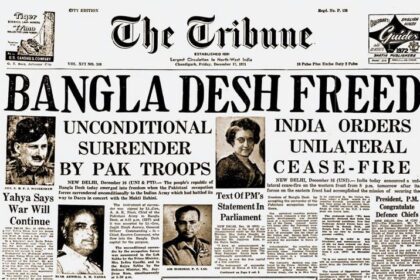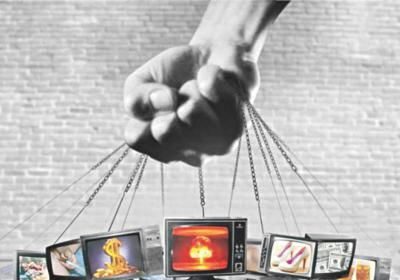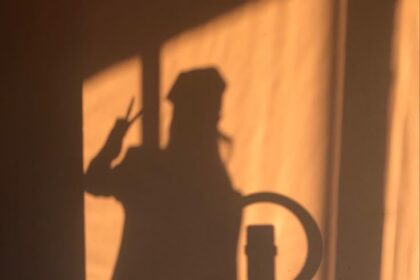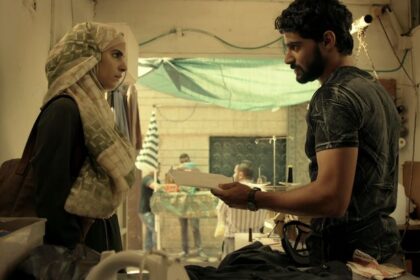How do masked men, running on nothing but adrenaline, hold such strong morals? I vividly remember Friday nights, when the soft flicker of the lamp would cascade through the room in a soft orange hue. We would all gather around, and my dad would start up another animated Batman movie – I nestled into his side. My diminutive brain holding on to every plot, every trick up Batman’s sleeve – at this age, I had more faith in a masked man in spandex than my reality.
Vigilantism has become so romanticised that it seems the only way to get a hold of our disintegrating demise.
Vigilantism, according to The Oxford Dictionary, is related to the practice of taking unofficial action to prevent or punish crime, often because of a perceived inadequacy of official law enforcement. Our younger generations are being fed rage, craving justice outside the law which in itself has now become the bare minimum – rightfully so.
Who allowed Batman the right to act as the judge, jury, or executioner? What makes a man grappling in a cowl more trustworthy than our actual systems? Perhaps because Batman gets the job done. Where institutions fail, the bat signal rises.This isn’t only about Batman; this is about every vigilante we’ve created as protectors of society to step up when our system gives out. When the only sight is capes whooshing as our government crumbles. So, we don’t just cheer for masked men – we cheer for those who showed up.
Vigilante media isn’t just consumed – it’s wolfed down. Our screens are enclosed by capes and cowled men who feel the need to take justice into their own blood-stained hands, moving through the world as if it owed them something – a truth, shelter, or more. Think Batman, Daredevil, and The Punisher. Their pain becomes their moral compass; their reason for doing what they do, hence their violence gets excused as a necessity. The media wraps their stories into haunting narratives enough to lay open the audience’s chest, Cinematic close-ups of bloodied fists meeting jaws – turning violence into a noble act.
Here’s the catch: these vigilantes aren’t held up to the same moral standards as us. Thus, their suffering permits them to do what they do. Trauma gets sold to the narrative, the worse the world gets, the more brutal their punishments become. So, when the police, government, and our authorities who have sworn to protect us above all fail, we rely on these masked men with vendettas that could last several lifetimes to save us.
The problem with this fractured reality is that sometimes its remnants bleed out into the real world, making these vigilantes a part of us — they could be walking down your street at this moment. So no, what I’m saying isn’t psychotic – it’s the factual truth. In Seattle a man known as Phoenix Jones patrols the night in his bulletproof suit, a creature of dusk armed with pepper spray and a GoPro, playing his part to ward off supposed criminals. In India, we encounter a vigilante group known as the “Gulabi gan”, which has been operating against domestic abuse and violence ever since they were founded in 2006. Consisting of women who drape their pink sarees and proudly hold their weapons of vengeance; bamboo sticks, aiming to empower the women and fight corruption. More often than not, mobs appear, dragging men out onto the streets, passing their sentences leaving statements of justice behind – corpses marred in the name of honour, doing what our system never could do.
We cheer for Batman when he plays the hero but what happens once the tables turn and your neighbour decides he too can play the part? He too can serve sentences through fists and broken noses?
Truthfully, our generation isn’t wrong to expect justice from these men, since they’ve never seen it from the systems themselves. We were raised on the verdict that power consumes all, regardless of whether it pleads guilty or not guilty. We scroll through posts and hashtags highlighting our protests only to find injustice washing over us again, drenching our hope. So maybe we crave the control we lack. Maybe we dislike the idea of begging for someone to fix our world for us so we turn to the only figures we know will.
To our generation, the prestige of these vigilantes stands far from being avengers of justice but as symbols of our losses, our grief, and what we failed to fight for.
Sometimes the line blurs into unpredictable territory, where the hero and executioner start to seem identical. We don’t blink an eye when a man dons a mask in the name of justice, we put him on this high pedestal where accountability and oversight start looking insignificant. We permit them to rewrite the rules.
History has shown us that not all vigilantes sprout from righteousness; some rise out of ego and narcissism – the inexplicable belief that you are the saviour this world has always needed. When justice becomes personal, it stops being just, transforming into levels of bias. Consequently, when this becomes normalized, much worse threatens to be undone.
For every Batman we create, another man seems to believe delivering justice was his birthright. He might not have lost his parents in a dark alleyway, but he deems himself just as worthy. the saviour complex takes hold, consuming the man until it festers into rage-induced righteousness. He might prowl the streets in the name of protecting our women, might even hurt a boy for “looking wrong” — while the courts would arrive too late, allowing him to serve his personally crafted sentences in dark alleyways.
In my opinion, we never truly wanted these masked men, we simply basked in the feeling that someone out there was guarding us – unconventionally or not. But in this moment, our minds slipped the possibility that justice without accountability is simply vengeance with bias.
The truth is our heroes – whether fiction or real were a factor in helping us realise that our true want was for systems that healed instead of manhandling our fragile society that could fall apart at any given moment. So the next time you cheer for a masked man do ask yourself; Is he truly a hero? Or just a man at the right place at the right time?
















